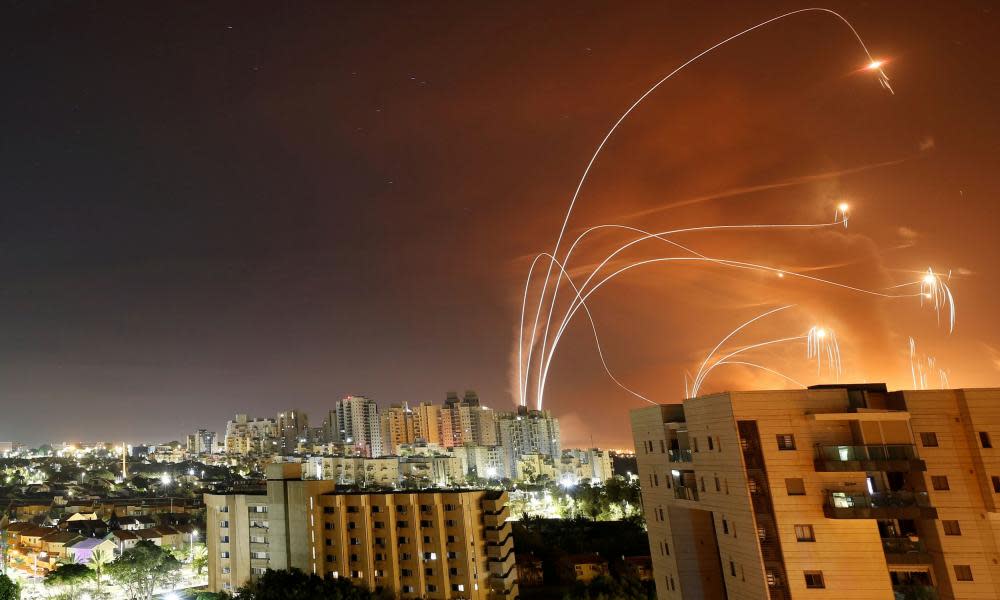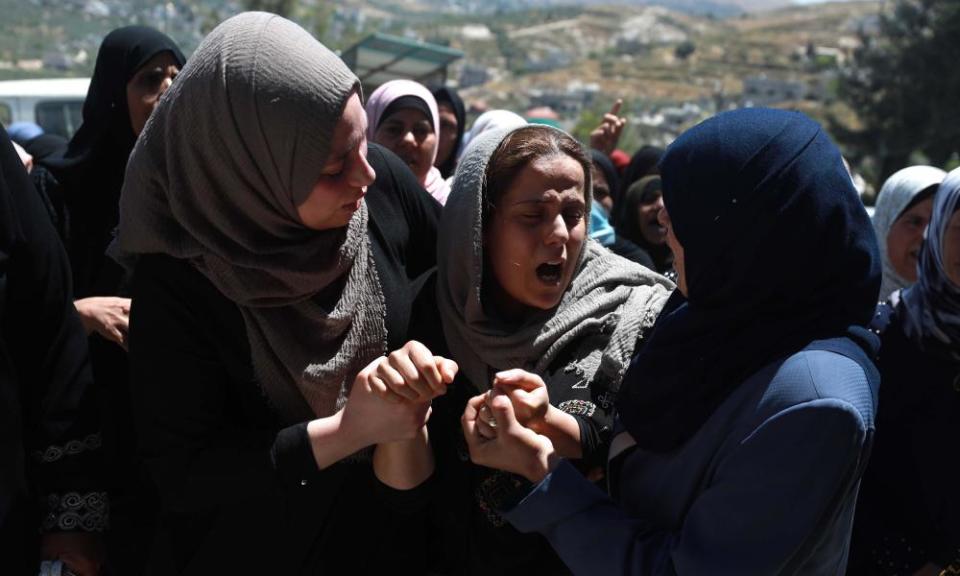Isolated Biden in bid to forge UN consensus on conflict

- Oops!Something went wrong.Please try again later.
- Oops!Something went wrong.Please try again later.
- Oops!Something went wrong.Please try again later.
The UN security council will meet in open session on Sunday to attempt to salvage a common position on the new conflict between Israel and Hamas after a week in which the US has faced isolation in its efforts to defend its Israeli ally.
The US mission has blocked a consensus council statement and took advantage of special rules in force during the Covid pandemic to put off the open meeting. Other council members wanted the session on Friday. The Americans had proposed Tuesday but were ultimately pressured into accepting a weekend meeting.
Overall, the UN has come out of the week looking sluggish and hamstrung while people were dying in Gaza and Israel. At the same time the Biden administration has lost a substantial amount of goodwill as its promises to put multilateralism and human rights at the centre of its foreign policy were perceived – by rivals and allies alike – as having substantial loopholes when it came to Israel.
“We hope that the US in the security council will live up to Biden’s pledge that ‘multilateralism is back’, and that they will agree to a joint statement,” a UN diplomat said after a week of frustration. “But so far the council is silent despite bombs and rockets killing innocent civilians.”
The US alone blocked a council statement on the worsening situation in the region at closed-door meetings in New York last Monday and Wednesday, and it was alone again when it opposed holding an open session on Friday, as proposed by Norway, Tunisia and China.
Preventing a meeting was an unusual step which in more normal circumstances would be put to a procedural vote – one that the US would almost certainly have lost. Virtual sessions during the Covid pandemic, however, have to be agreed by consensus.
The security council statement proposed at the beginning of the week was a call for de-escalation and an end to acts of provocation. It also included an expression of “serious concern” over evictions of Palestinian families in East Jerusalem, pointing out many of them had lived there for generations.

The Biden administration has expressed similar concerns and American diplomats made clear in the closed-door meetings it was not the wording of the statement that was at issue, but the timing. They said they wanted to allow bilateral diplomacy with Israel, and with Egypt and Qatar as channels to Hamas. Biden spoke to Benjamin Netanyahu and Mahmoud Abbas by phone on Saturday, in an attempt to defuse the situation, but there were few signs of that succeeding over the course of the week while the death toll kept rising.
As the pressure built on the US as the week progressed, Turkey and some Arab members began pushing for a UN general assembly meeting where the US would not have a veto and would be able to muster only a handful of votes among the 193 members.
According to diplomats at the UN, the US mission, led by ambassador Linda Thomas-Greenfield, had been in favour of a security council statement but had been overruled by Washington. However, the prospect of a demonstration of US isolation at the general assembly, on a scale reminiscent of the Trump era, helped bring the White House and state department around to accepting an open meeting.
“They were advising Washington that if they don’t have this meeting on Sunday, if you block too hard and say no to everything, it will go to the general assembly, and the numbers there are not good,” one UN diplomat said.
Steadfast support for Israel has been a consistent US policy at the UN through Democratic and Republican administrations. The Obama administration’s decision to abstain in a vote condemning Israeli settlement-building in its last weeks in office is now seen as an anomaly and not a direction Biden seems likely to follow.
However, the blunt tactics used last week have cost the US leverage at a time it has been claiming “multilateralism is back” and has been at the forefront of efforts to shame China and Russia into joining council statements on other human rights issues.
Related: Israel-Gaza violence: death toll rises as UN envoy warns over escalation
“After a period where Linda Thomas-Greenfield has really pushed other council members to make statements on Tigray and on Myanmar, for the US then to suddenly turn around and say that a statement would not be helpful inevitably creates a sense of dissonance,” Richard Gowan, the UN director of the International Crisis Group, said.
Diplomats at the UN stress that in terms of style and demeanour there is a definitive break with the Trump era, when the US would court confrontation and embrace isolation. They describe Thomas-Greenfield as hardworking and collegial. But on Israel at least, the bottom line remains the same.
“The tone of the way the US present their arguments privately is completely different from the Trump lot,” one diplomat said. “But the outcome is the same. They are effectively on their own. How far they will take it we will know on Sunday.”

